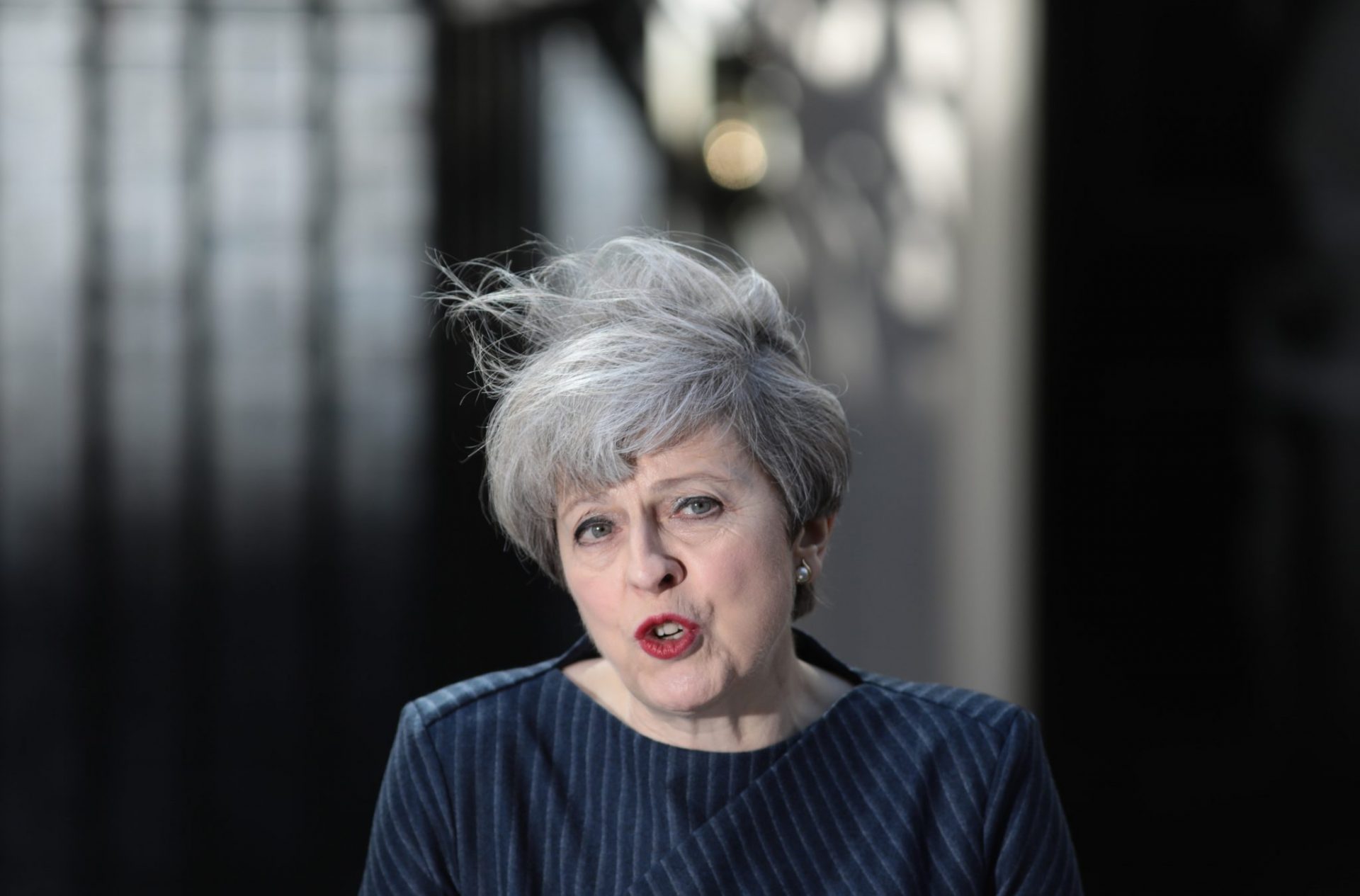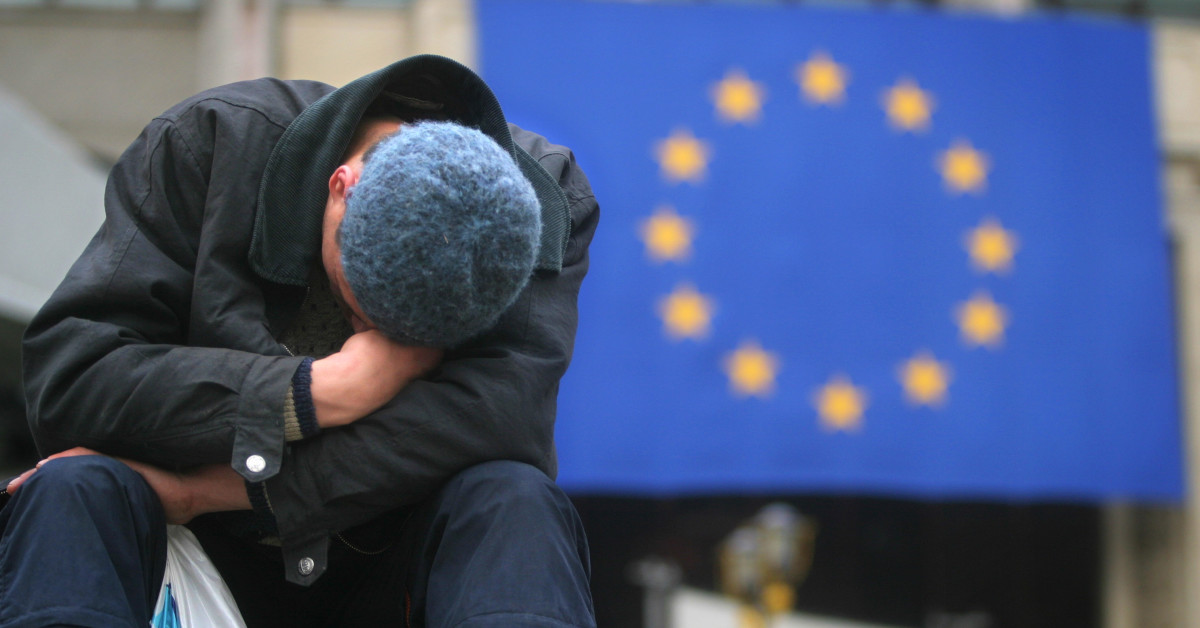
Donald Trump performed his usual pre-international meeting diplomacy this week, when he had a go at his allies and commended an authoritarian former enemy. If you’re a NATO ally, you got the full Trump abuse treatment. If you’re Vladimir Putin, you got a nice pre-comment about how easy a meeting with you will be.
Singled out for particular comment by the US President was the country that is about to offer him a couple of day’s hospitality – England. England was, he said, “in turmoil”. Which was doubtless an unwanted courtesy comment to his principal host, Prime Minister Theresa May.
Trump was referring, of course, to the recent double Cabinet resignation that has hit Mrs. May. Both her Brexit Secretary and her Foreign Secretary, in un-coordinated moves, resigned from her cabinet after that same cabinet approved her latest Brexit negotiating paper. It may seem a little brazen for Donald Trump, of all people, to shout “turmoil” at another country because it has had a recent turn-over of key political personnel. This is after all a man whose own cabinet is regularly roiled by high-profile and often scandalous staffing departures (Scott Pruitt being the most recent), to say nothing of the high turn-over of his White House staff. But then, no-one expects consistency or acuity from President Trump any more.
More to the point is the kernel of truth in Trump’s reference to English – or British – “turmoil”. Theresa May has surprised nearly everyone by actually hanging on as Prime Minister in the most unpropitious circumstances. This is largely because no-one else really wants the job while the intractable Brexit negotiation are going on.
The problem for May is that both her party, the Conservatives, and to a still large extent the country, remains completely divided by the Brexit issue, with no agreement on how it is to be achieved. Remainers want to cling to whatever bits of the EU they can, whilst Brexiters want to leave but have no other ideas. This has been exemplified by the resignations from her cabinet.
Both David Davis and Boris Johnson (Brexit Secretary and Foreign Secretary respectively) are leading Brexit cheerleaders. In cheerleading for Brexit they won a referendum, but have over the two years since failed to articulate a clear plan for turning the referendum result into reality. T
he consequence has been that the Remainers (who include, though only very lukewarmly, the Prime Minister herself) have been left to forge the details of a plan for EU exit which seeks to keep a number of lifelines available to the EU, whilst the Brexit mob cat-call from the sidelines.
Except that neither Davis nor Johnson were on the sidelines. They have been at the heart of the discussions for two years. That they felt “ambushed” by a plan they didn’t like, which was presented at the Prime Minister’s country retreat last weekend, was testament to their own political bankruptcy in never formulating an alternative.
Theresa May’s immediate turmoil has in fact been short-lived. Whilst the Davis and Johnson resignations generated much news and commentary, in the end it did not engulf the Prime Minister herself. She was largely cheered at a meeting of her backbenchers and no leadership challenge emerged.
In some ways, May has even been strengthened by the departure of Johnson in particular. Once hugely popular in Conservative circles, Boris Johnson was a consistently disruptive and divisive force in government, to say nothing of his vast unsuitability for a job requiring diplomacy, thought and dignity, none of which he himself possesses.
Indeed, he could well lay claim to being the worst Foreign Secretary Britain has ever had. One of the most eloquent social media comments on his departure was from the Attorney General of the small Commonwealth island of Anguilla. He met Johnson when the Foreign Secretary visited in the aftermath of the devastating Hurricane Irma. He commented that Britain’s chief diplomat was “disinterested and out of his depth. Good riddance.”
With the narcissistic Johnson out of her cabinet, May can at least look forward to more harmonious meetings within government, and a lot less self-serving leaking, even if he continues his empty bombast from the backbenches. She can also take some satisfaction from the fact that his stint as Foreign Secretary has exposed his many shortcomings like nothing else before, substantially reducing his appeal.
Nonetheless, the long-term turmoil of Brexit remains, and the essential dilemma for a Conservative Prime Minister is this. The Brexiteers have abdicated responsibility for their referendum child but continue to stir up empty passion about it, while the Remainers have decided to pick up the pieces and limit what they see as the damage that a full throated exit will cause.
In all honesty Theresa May, and all the Remainers, should take the only sensible path before them. It is a dramatic one, but they should all resign from government and hand the reigns over to the Brexiters. There is no gain at all for Remainers to take responsibility for the Brexit they didn’t want. As long as they do, Brexiters can continue their malevolent course of damning the deal-makers and simultaneously running away from any responsibility.
It is in fact what people like Boris Johnson and backbench cheerleaders like Jacob Rees Mogg do best. Their bluff should be called. They asked for this mess, they should now drive Britain out of it. When they fail, they can be comprehensively removed from the centre of the British body politic, and a dreadful political boil will have been finally lanced. It will hurt, but it is the only way of eventually restoring some semblance of normality again.



